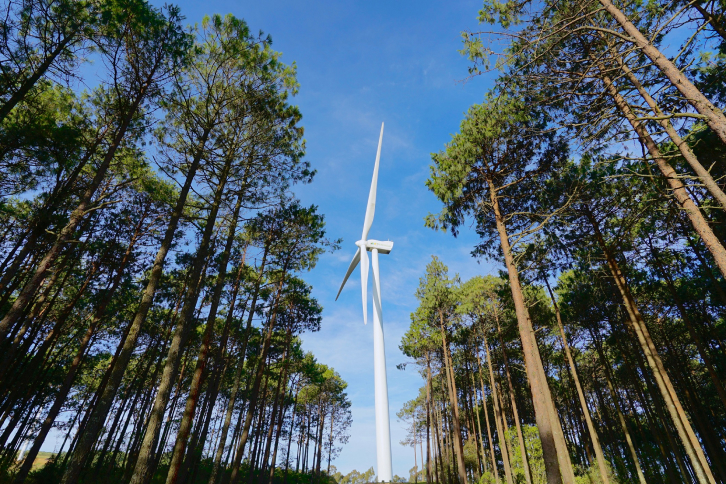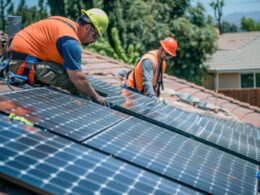Iberdrola has unveiled plans to construct Portugal’s largest hybrid renewable energy project, integrating wind and hydropower within the Tâmega Power Plant System (SET). With an investment of €350 million, the initiative aims to generate 601 GWh annually, enough to power 128,000 households, while reducing CO2 emissions by 1.2 million tons each year. This project marks a significant milestone in advancing Portugal’s renewable energy capacity and national climate goals.
The project, located in the districts of Vila Real and Braga, recently secured a production license from the Portuguese Directorate General of Energy and Geology (DGEG). By sharing infrastructure with existing facilities in Ribeira de Pena, including connection points and evacuation lines, the initiative will minimize its environmental footprint. Iberdrola has also signed a long-term power purchase agreement (PPA) to ensure a reliable supply of clean energy.
Key components of the development include the Tâmega Norte and Tâmega Sul wind farms, which will feature 38 Vestas Enventus V172 wind turbines, each with a capacity of 7.2 MW. The hybrid design will stabilize renewable energy output by alternating between wind and hydroelectric power, reducing dependency on intermittent environmental conditions.
Alejandra Reyna, Director of Iberdrola Renovables Portugal, highlighted the project’s significance: “We have taken an important step towards the construction of the largest wind farm, and the first hybrid project combining wind and hydro power, in Portugal. This project is a further demonstration of Iberdrola’s commitment to promoting the energy transition in Portugal, where it has already invested more than 2 billion euros in renewable energies over the last 20 years. This commitment to electrification, through renewable energy and a focus on innovation, shows our commitment to building a sustainable, reliable and affordable future.”
The project is expected to create 700 jobs during its peak construction phase, boosting the local economy and fostering partnerships with Portuguese suppliers such as CJR and Conduril-Socorpena. The focus on local engagement extends to environmental preservation, with measures in place to continuously monitor biodiversity, mitigate potential impacts, and protect ecosystems throughout the construction process.
As part of the broader Tâmega Power Plant System, which includes the operational Gouvães Pumped Storage Power Plant and Daivões Power Plant, the hybrid project will enhance Portugal’s energy security and reduce reliance on fossil fuels. The Tâmega Complex, with a total investment exceeding €1.5 billion, currently generates 1,766 GWh annually and supports 6% of the nation’s total installed electrical capacity.






















